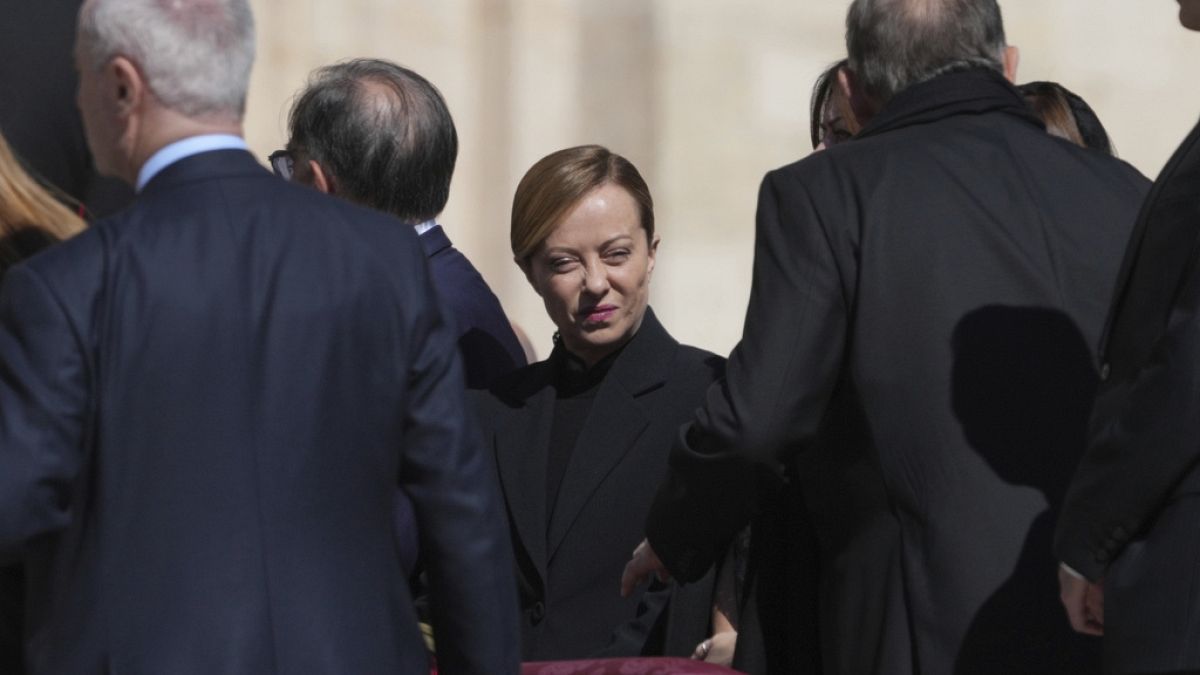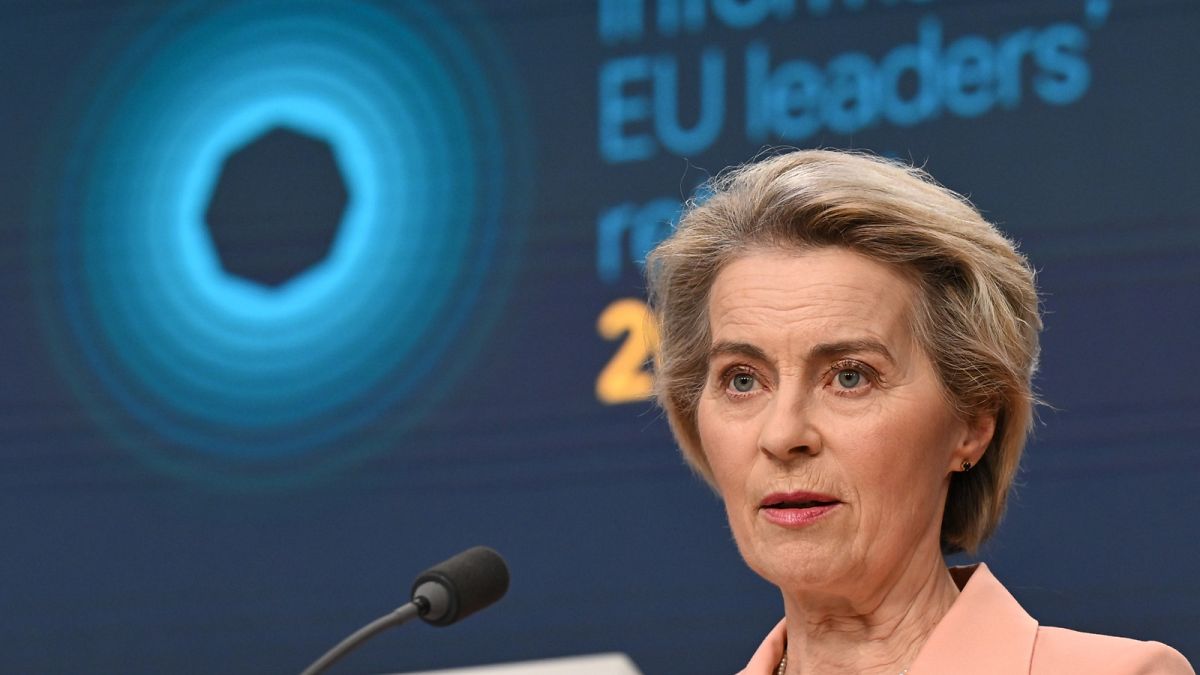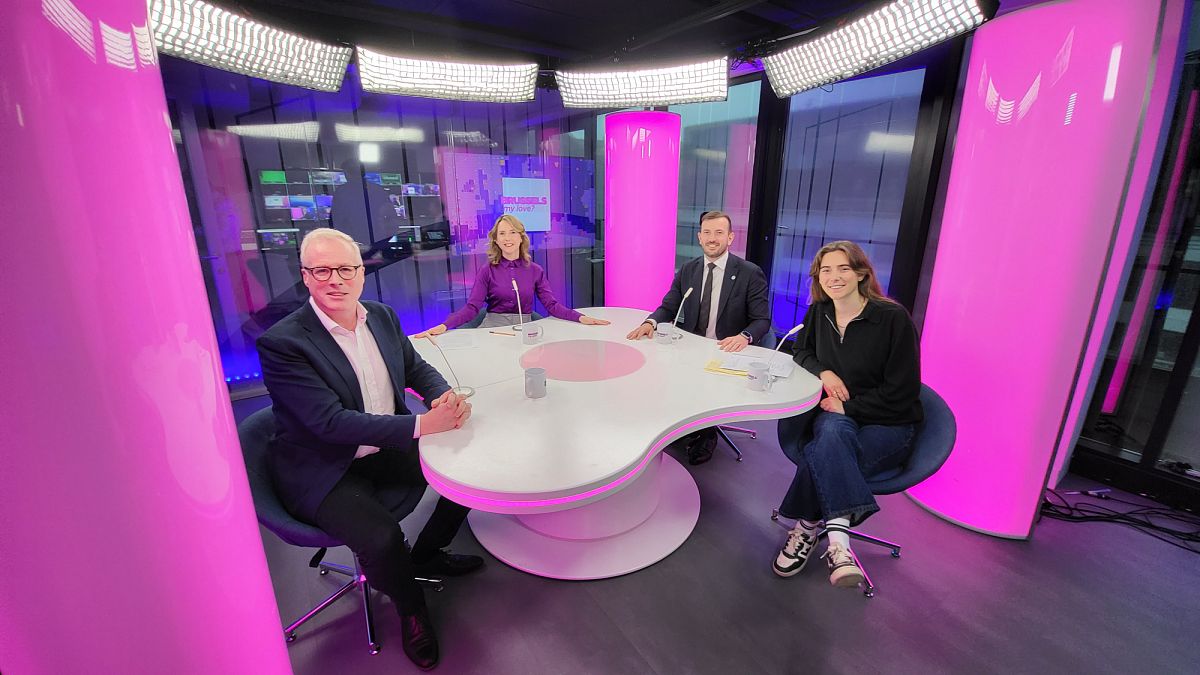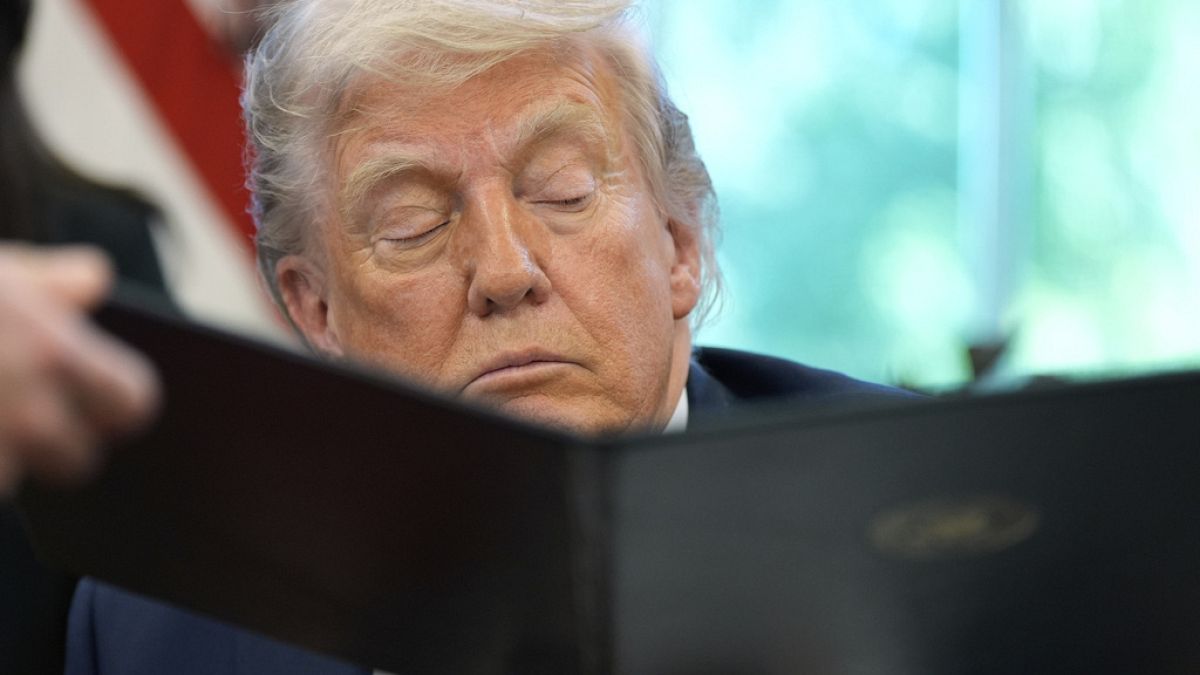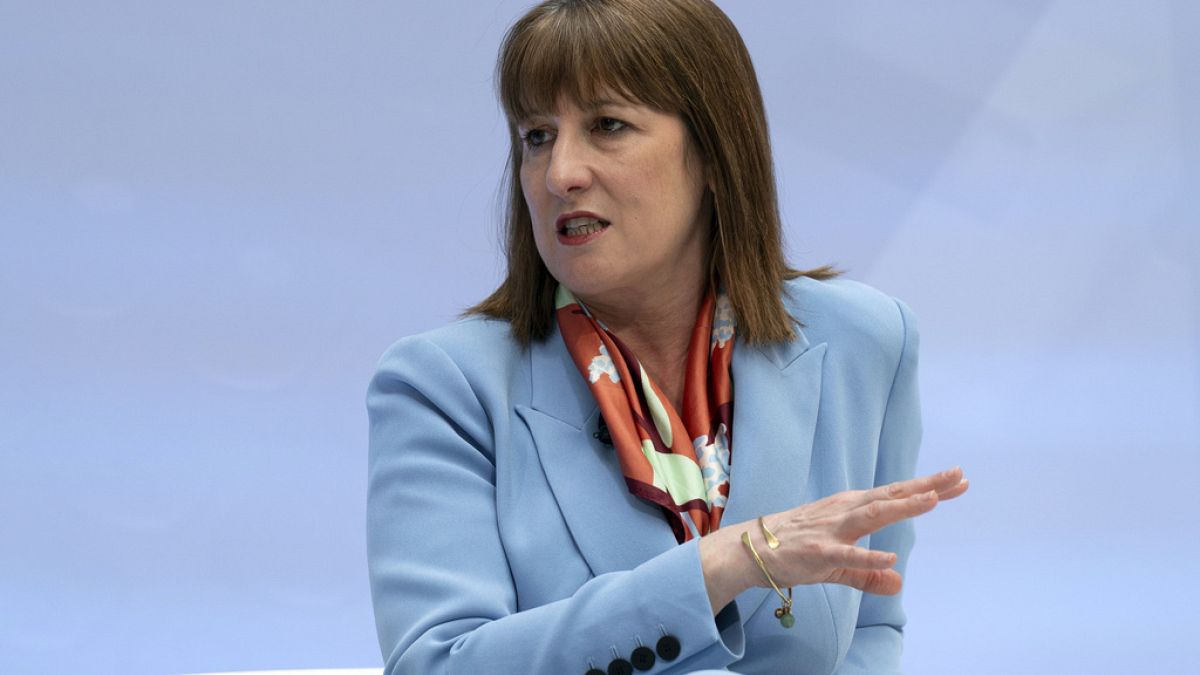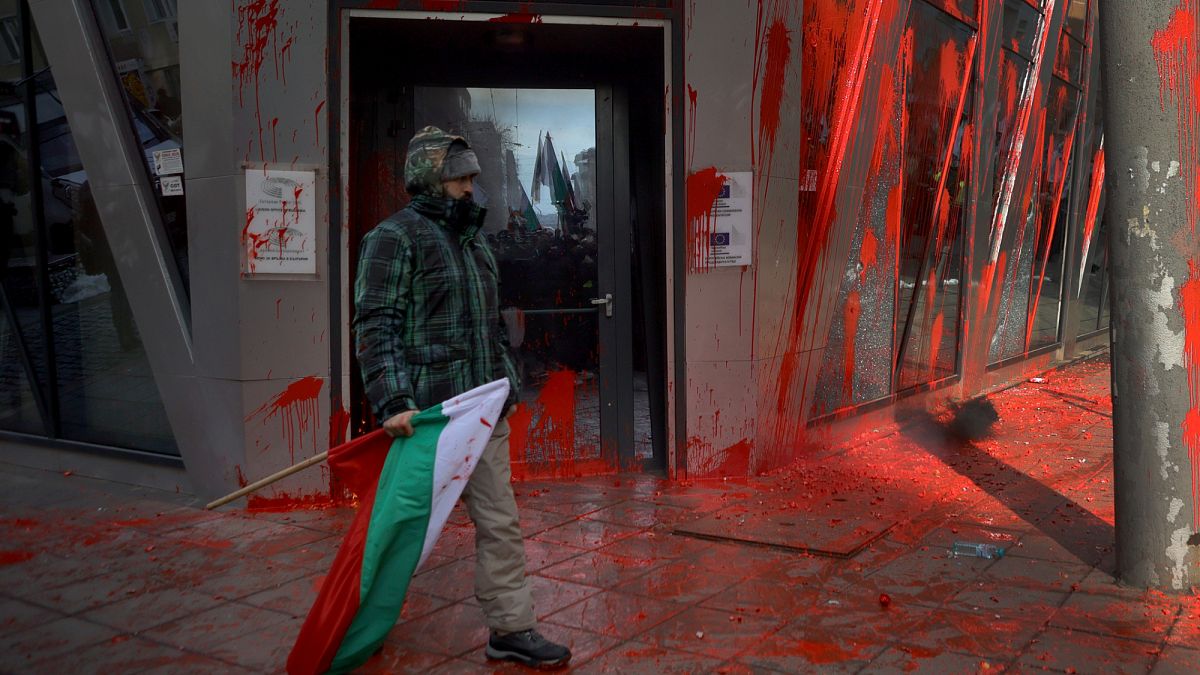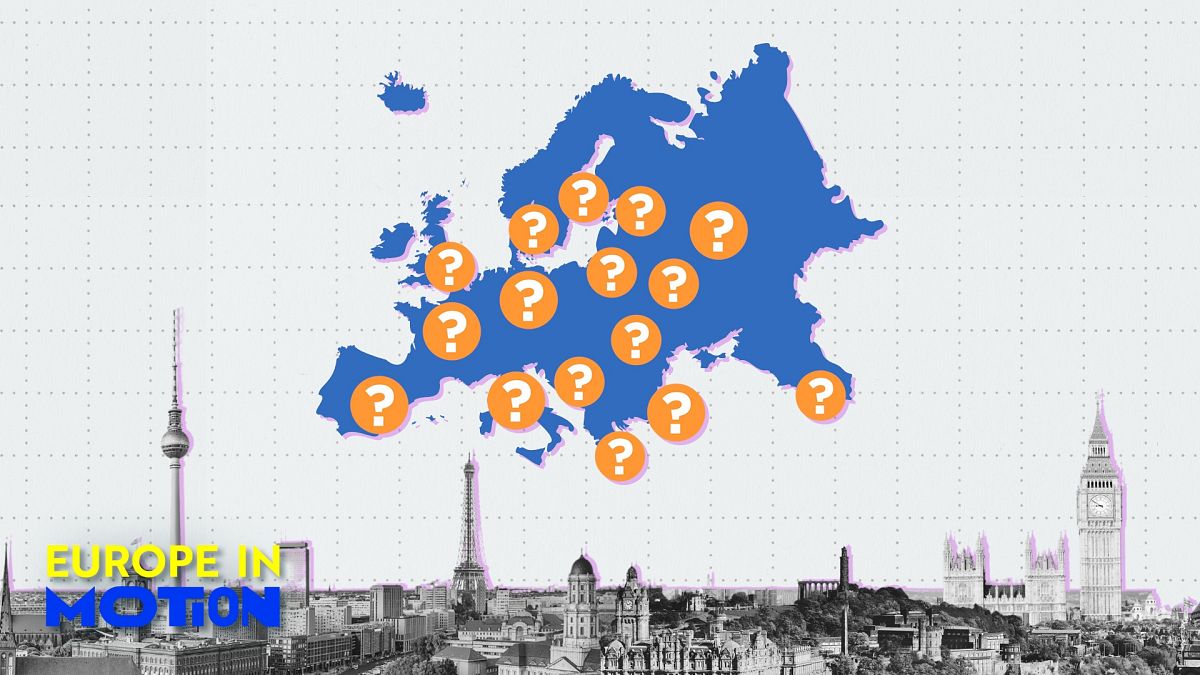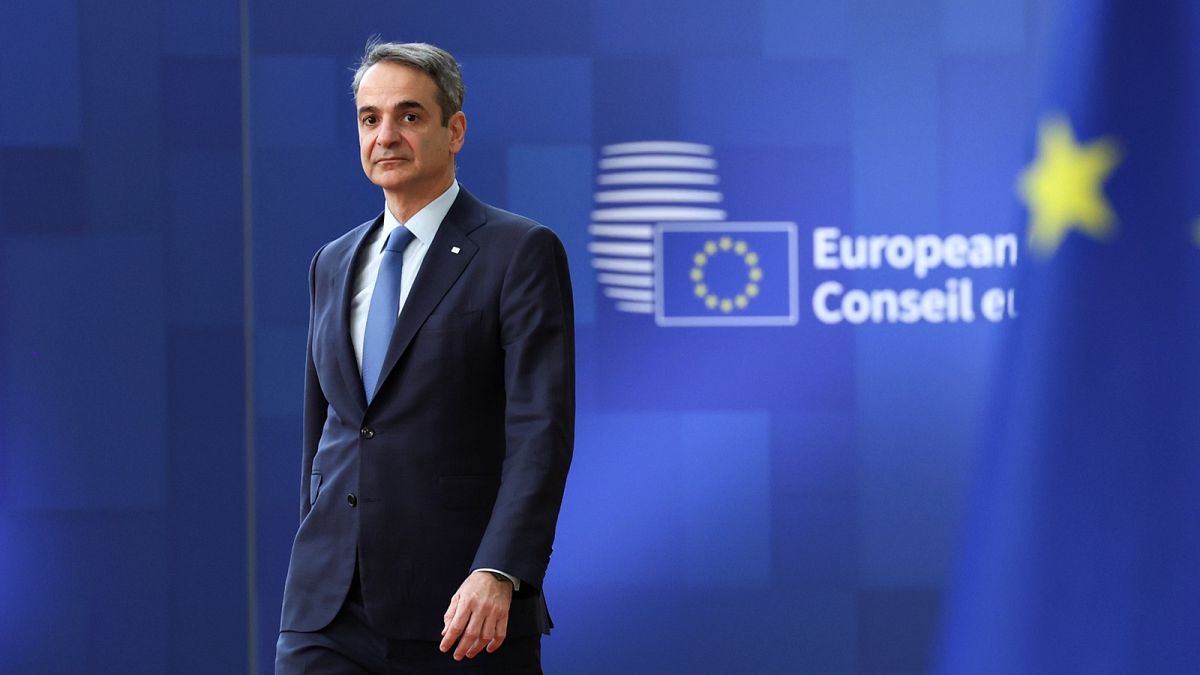“We will always protect our own interests – however and whenever that is needed,” Ursula von der Leyen said after Donald Trump warned tariffs against the EU would happen “pretty soon.”
The European Union is ready to engage in “tough negotiations” with Donald Trump to prevent a trade war between the two sides of the Atlantic, Ursula von der Leyen said on Tuesday, a day after Canada and Mexico struck last-minute deals with the White House to temporarily avoid the painful imposition of 25% tariffs.
Trump warned on Sunday that tariffs against the bloc would “definitely happen” and be introduced “pretty soon,” putting officials and diplomats in Brussels on high alert.
“We will be ready for tough negotiations where needed and to find solutions where possible, to work out any grievances and to set the foundations for a stronger partnership. We will be open and pragmatic in how to achieve that,” the European Commission president told the annual gathering of EU Ambassadors in Brussels.
“But we will make it equally clear that we will always protect our own interests – however and whenever that is needed. This will always be the European way.”
The agreements with Canada and Mexico, announced shortly after Prime Minister Justin Trudeau and President Claudia Sheinbaum held separate phone calls with Trump, suggest the Republican sees the tariffs as a foreign policy tool to extract concessions from other nations, including close allies, rather than to rebalance commercial relations, as he claimed during his successful presidential campaign.
The deals with Canada and Mexico involve commitments to reinforce border controls and crack down on the fentanyl trade, arms trafficking and organised crime.
In exchange, Trump will delay the 25% tariffs for an initial period of 30 days, and Canada and Mexico will refrain from imposing the counter-duties they had designed. By contrast, the 10% tariffs on China have gone into effect, prompting Beijing to retaliate.
As markets try to digest the commercial back-and-forth, attention turns to the EU, which appears to be next in line on Trump’s list.
“The European Union has abused the United States for years, and they can’t do that,” Trump told journalists.
The EU has had a long-standing surplus in goods with the US, worth €155.8 billion in 2023. Pharmaceutical products and vehicles were the most valuable exports, according to Eurostat. But in services, the flows are the opposite: the EU has a recurrent and considerable deficit with the US, worth €104 billion in 2023.
Trump has focused his complaints on goods, without taking services into account.
“They don’t take our cars, they don’t take our farm products, they take almost nothing and we take everything from them. Millions of cars, tremendous amounts of food and farm products,” he said.
‘A lot is at stake’
Should the American president follow through with his threat, the task will fall upon the European Commission, which has exclusive competence to set commercial policy.
In her speech, von der Leyen insisted the Commission’s “first priority” would be to engage with the new administration to find common ground.
She did not give any examples of concessions that Brussels could offer to placate Trump’s fury and instead spoke of cooperating on “the many areas where our interests converge,” such as critical supply chains and emerging technologies. (In November, she floated the idea of buying more American LNG to help the bloc phase out Russian fuels.)
Equally, von der Leyen did not name the sectors that Brussels might decide to target in its potential retaliation. Canada, for example, had announced counter-tariffs on key American products coming from Republican-voting states, before putting them on hold.
“Together, the EU and the US represent almost 30% of global trade in goods and services. And more than 40% of global GDP. European companies in the US employ 3.5 million Americans. And another million American jobs depend directly on trade with Europe,” she said to make her case for dialogue.
“The point is that a lot is at stake for both sides,” she went on.
“There are jobs, businesses, industries here and in the United States that rely on the transatlantic partnership. So we want to make it work. And not only because of our historic ties. But because it is simply smart business.”
While von der Leyen emphasised the importance of EU-US relations, she also urged ambassadors to be “bold and agile” to develop partnerships with other nations, including those that “are not like-minded but do share some of our interests.”
Notably, she mentioned China as a country with which the bloc could “expand” trade and investment ties while addressing friction points.
The EU, von der Leyen said, should abandon its nostalgic attachment to the world that emerged after WWII and adapt its foreign policy to the era of “hyper-competitive and hyper-transactional geopolitics” that is shaping the 21st century.
Wars, invasions, rising authoritarianism, tariffs, sanctions, disruptive technologies, climate change and irregular migration are all a testament to that new reality, she said. (Trump has threatened to seize Greenland by force, if necessary.)
“Europe must deal with the world as we find it. And I am convinced that in this hot-headed world, Europe’s best approach is to remain level-headed,” she said.
“It must make decisions not out of emotion or nostalgia for a world that once was. But rather out of calculated judgment about what is in our own interest in the world as it is today. Because foreign policy and diplomacy are not an end in themselves. It is a way to deliver stability, security and prosperity for our citizens – and for our partners.”





